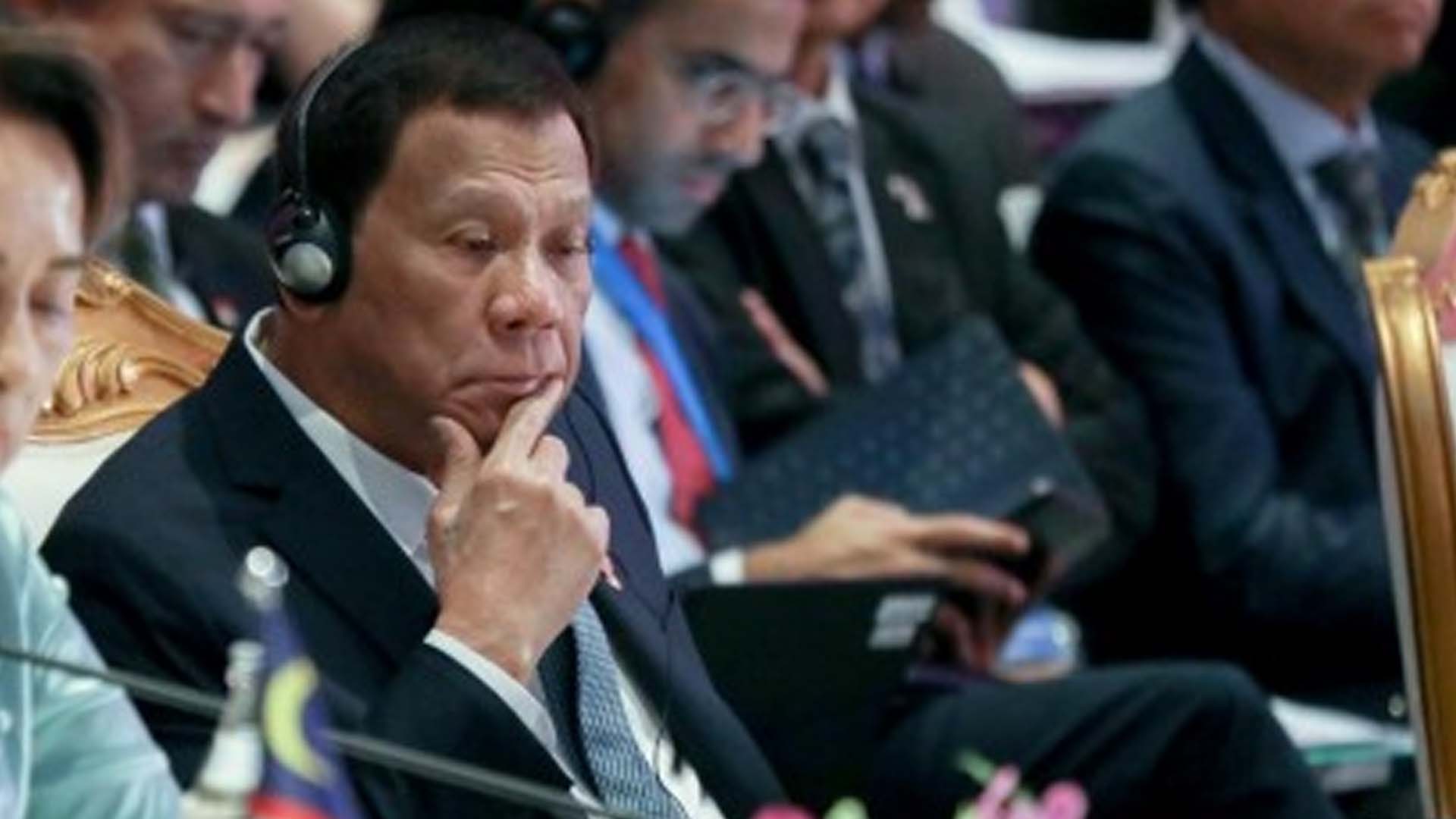President Rodrigo R. Duterte hailed the milestones achieved by the Association of Southeast Asian Nations (Asean) and its partners in the Asean Plus Three (APT) in ensuring developments on infrastructure, among others.
“He affirmed the importance given by the Philippines on the strategic role of the APT Cooperation in community-building efforts, underscoring the 65 mechanisms in place,” Chief Presidential Legal Counsel and Presidential Spokesperson Salvador S. Panelo said in statement, referring to the President’s first engagement for the day which is during the 22nd ASEAN Plus Three (APT) Summit here.
The summit involves the 10-member regional bloc plus China, Japan, and Korea.
Panelo said the President thanked the APT participants for the Master Plan for Asean Connectivity (MPAC) 2025, which is targeted to provide a seamless and comprehensively connected and integrated Asean through sustainable infrastructure, digital innovation, seamless logistics, regulatory excellence and people mobility.
Three deliverables have been identified under this program so far and this include the establishment of a rolling priority pipeline of Asean infrastructure projects aimed to attract more public and private investments, development of a sustainable urbanization strategy, and the study on the adoption of digital technology among micro, small, and medium-sized enterprises (MSMEs).
Relatively, the President also thanked China for its commitment to support the Brunei Darussalam-Indonesia-Malaysia-Philippines East Asean Growth Area (BIMP-EAGA), which was launched in Davao City in 1994.
The President noted that this sub-regional economic cooperation provides a venue for the development of far-flung areas like in Mindanao.
Meanwhile, Duterte cited Japan’s Expanded Partnership for Quality Infrastructure that helps Asean countries construct state-of-the-art infrastructure network.
One notable project under this program is the underground railway called Metro Manila Subway project, which will be financed by Japan through the Japan International Cooperation (JICA).
The initial tranche of official development assistance (ODA) amounts to JPY104.53 billion (USD935 million) and is payable in 40 years, inclusive of a 12-year grace period.
The subway will have 15 stations from Quirino Highway in Quezon City to the Ninoy Aquino International Airport in Parañaque City.
Similarly, Duterte recognized South Korea’s ideas on innovation and smart city developments, and lauded the Asean Smart Cities Network (ASCN).
Under ASCN, 26 pilot cities have been identified to have smart and sustainable development and these are in Bandar Seri Begawan, Battambang, Phnom Penh, Siem Reap, Makassar, Banyuwangi, DKI Jakarta, Luang Prabang, Vientiane, Johor Bahru, Kuala Lumpur, Kota Kinabalu, Kuching, Nay Pyi Taw, Mandalay, Yangon, Cebu City, Davao City, Manila, Singapore, Bangkok, Chonburi, Phuket, Da Nang, Hanoi, and Ho Chi Minh City.
Aside from infrastructure-related measure, Duterte also noted the Asean Mutual Recognition Arrangements has allowed for enhanced people-to-people connections.
“PRRD (President Rodrigo R. Duterte), in particular, told in the summit to consider harmonizing standards on nurses and other healthcare professionals,” Panelo said.
“He likewise manifested that he looks forward to the conclusion of the negotiations on the Regional Comprehensive Economic Partnership (RCEP),” he added.
Asean leaders and their 6 partner economies aim to conclude RCEP discussion during the 3rd RCEP Summit Monday despite questions by one partner.
Earlier, Philippine Trade and Industry Secretary Ramon Lopez said 18 of the 20 chapters of the proposed mega trade deal have been approved and trade ministers are expected to “report a very positive development” to Asean leaders at the end of the Summit.
“The mindset right now is for everyone to be in… We believe that even that one country is working doubly so that they can assess and address all the issues (that are) pending,” he said.
RCEP is a free trade agreement between the Asean member-countries and six trading partners namely China, Japan, South Korea, India, Australia and New Zealand. (PNA)








